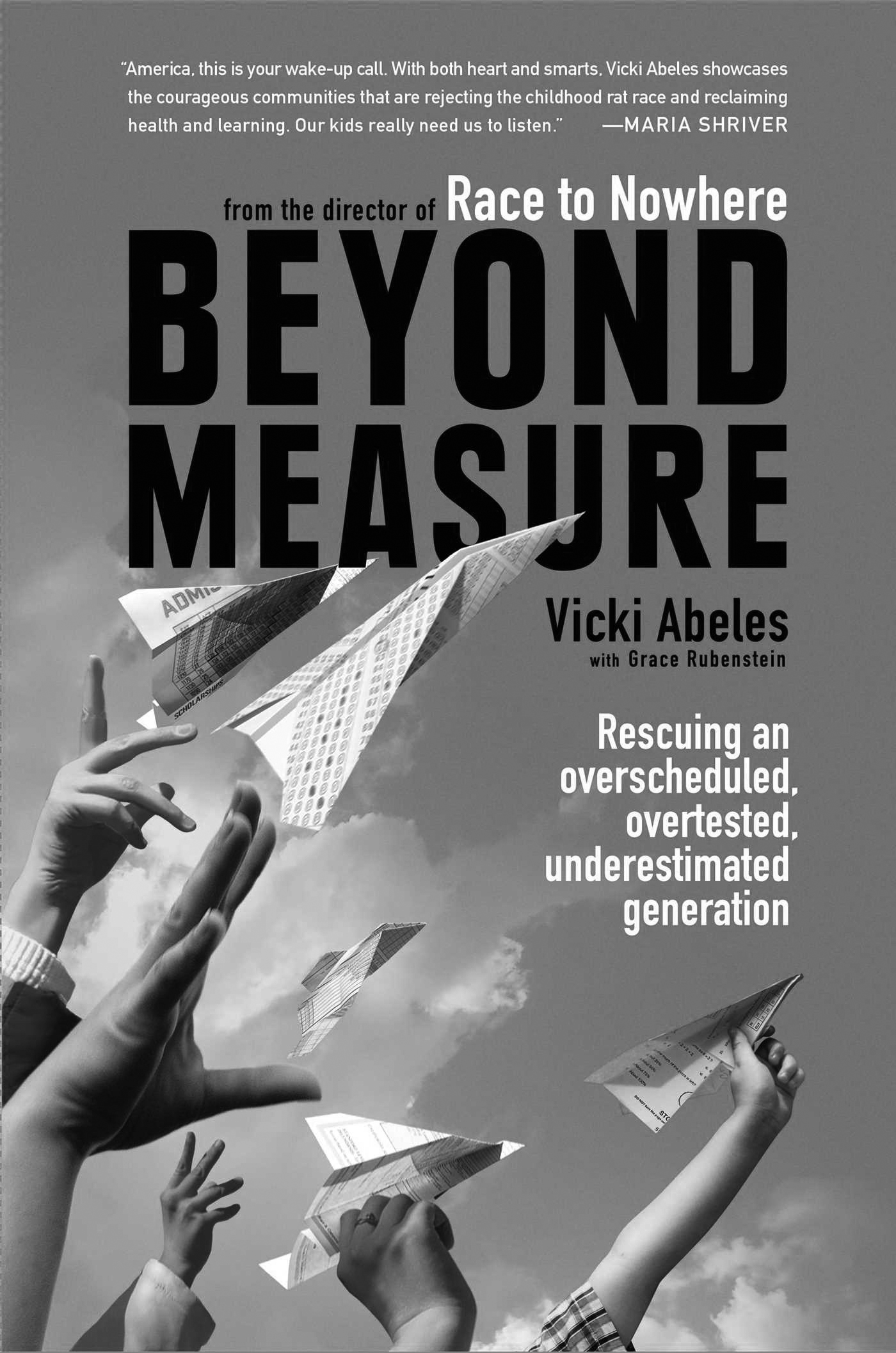Abeles, Vicki, with Grace Rubenstein. Beyond Measure: Rescuing An Overscheduled, Overtested, Underestimated Generation. New York: Simon and Schuster, 2015.
The best things in life can’t be measured. At least that is what I have heard repeatedly and what I think the title of this book is trying to say. Our recent federally mandated attempts in the field of education to apply quantitative measures to work that is both science and art have again fallen short. In the realm of K–12 Christian education, I have heard this response to my urging schools to be more intentional about nurturing faith—“but faith development can’t be measured.” In her New York Times best-selling book, Beyond Measure, Vicki Abeles is sounding a wake-up call to parents and educators: “Let’s acknowledge that the things we are currently measuring are not the most important things in the whole big scope of life. There is a better way.”
Of course, this book caught my eye because I have been advocating that as Christian educators we ought to be leading the way on student flourishing—student outcomes organized around a set of concepts that embody the very best of humanity and what God has created us to be. When students are flourishing, they are experiencing shalom and have the opportunity to bring shalom to others. The way we have set up our teaching and learning systems, however, can directly or indirectly work against our desired outcome of student flourishing. Some schools are in the process of rethinking key questions: What do we believe about how students learn? Is there a better way that is both distinctively Christian and highly meaningful, joyful, and engaging to the student?
So, what in our current system gets in the way of student flourishing? Abeles makes a compelling argument, backed by multiple data points, that our current education system is not only broken, but actually dangerous to kids. She writes with the intensity of a “mama bear,” and out of some personal pain related to the school experiences of her own children and the children of friends. The subjects of her first five chapters have to do with five areas of significant concern in education: student health and well-being, time usage, homework, testing, and college admissions. In her last three chapters, she lays out examples and models of schools working toward student flourishing in various ways.
Consider these concerns she shares in her opening chapter on student health and well-being:
- Kids are more stressed than adults.
- Stress drives one in three kids to sadness and depression.
- Five to eight times more kids in college report serious mental health problems than in the 1950s.
- Suicide rates have doubled since 1950 among 15–24 year olds and tripled among younger children.
- Recent data shows an earlier onset of depression, anxiety, tics, and panic attacks due to stress—now appearing increasingly in elementary-age children.
- One in three parents say scheduled activities make it hard for kids to get the sleep they need.
- Prescription rates for stimulants like Adderall and Ritalin have increased eight times since the 1990s and doubled for teens in the past ten years.
- Stress is impacting all kids, regardless of socio-economic circumstances.
- Today’s students rank 40 percent lower on empathy than kids in the 1970s.
While we may dismiss some of this data by telling ourselves that this doesn’t reflect our student population, we certainly can’t think that our kids are immune.
Dan Beerens is an educational consultant whose mission is to strengthen K–12 Christian day school education. He can be contacted at DB Consulting at <www.danbeerens.com/>.
